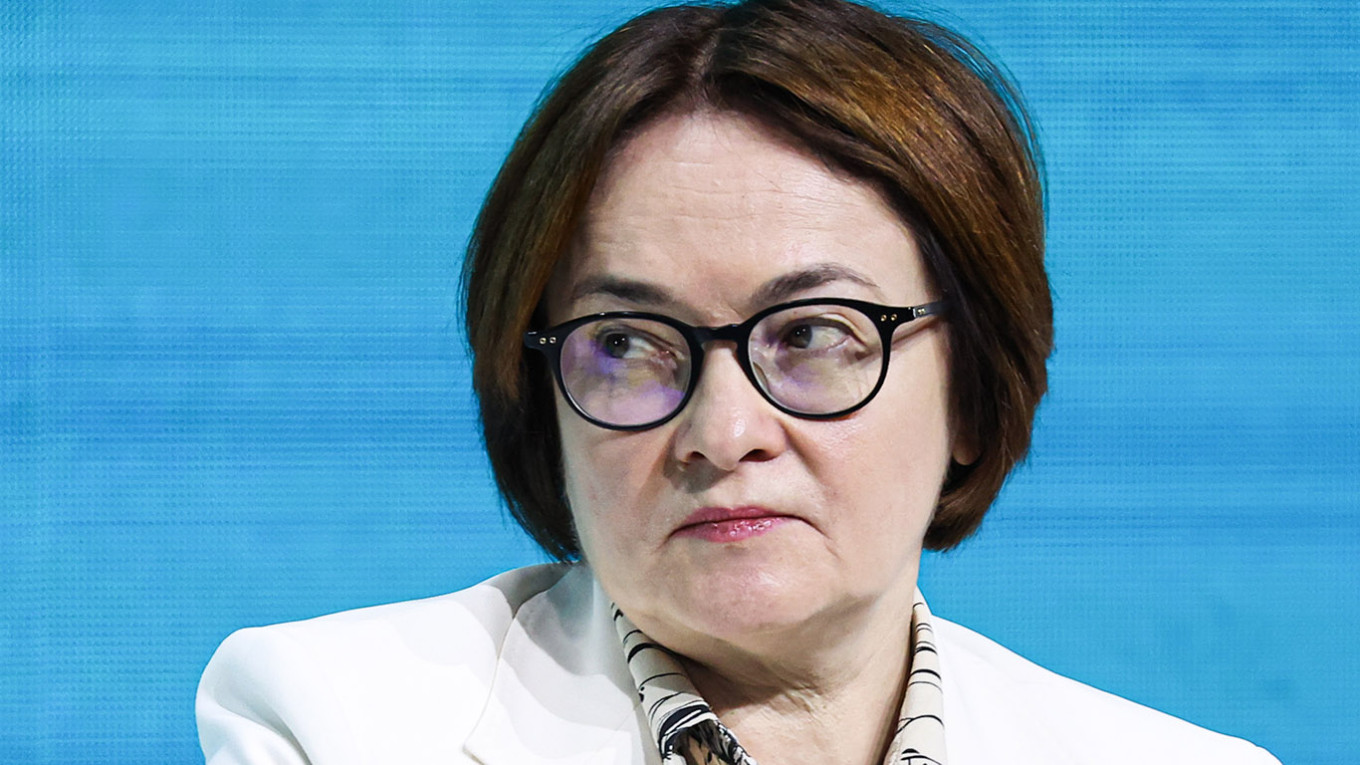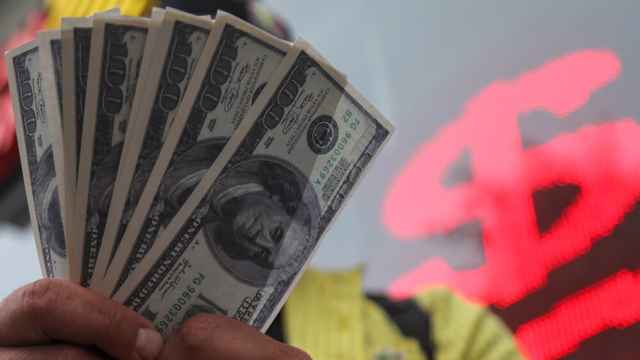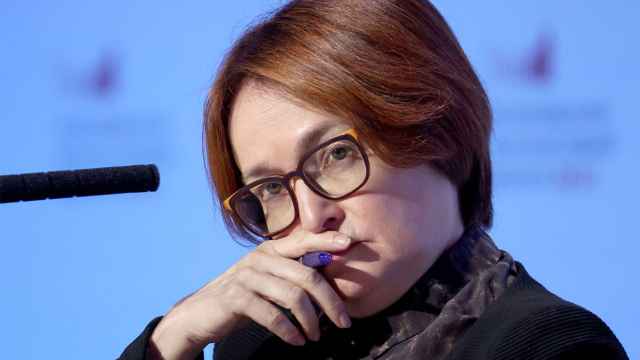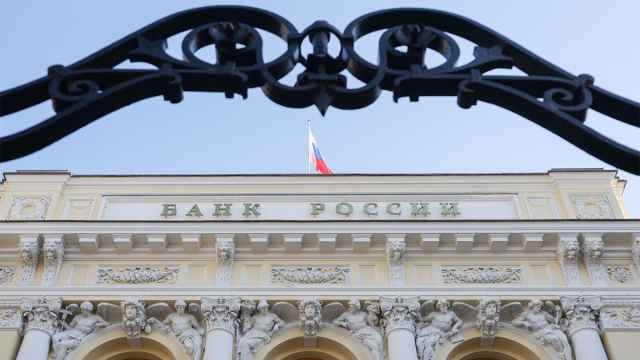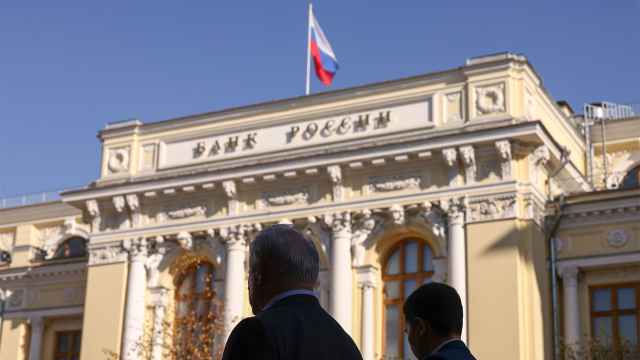Russia’s Central Bank cut its key interest rate by 1% on Friday, its third reduction this year and a modest move that was welcomed by businesses as high borrowing costs and a slowing economy increasingly overshadow inflation risks.
Policymakers have been cautious in easing the key rate after hiking it to a two-decade high of 21% in September 2024 to curb surging inflation, largely driven by military spending. In its statement on Friday, the Central Bank said it would maintain a tight monetary policy as inflation expectations “remain high,” underscoring its heedful approach.
Annual inflation stood at 8.2% in early September, more than double the Central Bank’s 4% target. Policymakers said they expect inflation to ease to 6-7% by the end of 2025 and return to the target next year.
The rate cut was widely anticipated, as a growing chorus of voices in Russia’s business community has warned in recent months that a combination of high interest rates and an overvalued ruble was creating a “perfect storm” that could stunt investment and weigh down on economic growth in the years ahead.
Russian GDP grew by just 1.1% year-on-year in the second quarter of 2025, down from the 4.1% growth recorded over the same period last year. Economic growth in the first quarter of 2025 was 1.4% year-on-year.
On Friday, the Central Bank acknowledged the economy was slowing, but said that the growth rate was “still positive.” It also stated that business activity was uneven across industries, pointing to export-oriented businesses in particular as facing a “cooldown.”
“Domestic demand is backed up by rising household incomes and budget expenditures. Consumer activity growth has even slightly sped up,” policymakers said in their statement.
At the same time, the Central Bank noted a strong demand for workers, with wages still going up faster than productivity. It said unemployment remains at record lows.
Russia’s Economic Development Minister Maxim Reshetnikov said earlier this month that the economy was “cooling down faster than expected” and that new government forecasts would be submitted “shortly.” Finance Minister Anton Siluanov, meanwhile, had told President Vladimir Putin that growth projections for next year were down to 1.5%, from 2.5%, with some estimates pointing closer to 1.2%.
The slowdown comes as Russia’s state finances show growing strain. In August, the Finance Ministry reported that the federal budget deficit reached 4.88 trillion rubles ($61.1 billion) between January and July, already exceeding the government’s full-year target. At the same time, weaker global oil prices, a stronger ruble and mounting Ukrainian attacks on Russian oil storage and pumping sites have eroded export earnings.
T-Investments chief economist Sofia Donets, describing the Central Bank’s press release on Friday as “neutral” and similar to those issued at recent key rate meetings, said possible revisions to the federal budget that allow for more government spending may prompt policymakers to hold off on further rate cuts at their next meeting on Oct. 24.
“However, our key rate forecast remains unchanged, and we expect it to be lowered to 15% by the end of this year,” Donets said.
Still, stocks slumped as the Central Bank appeared to dial down expectations for key rate cuts later this year. Russia’s MOEX stock index was down 1.98%. The ruble was trading at 83.85 to the U.S. dollar, down 0.77%.
Russia’s Union of Industrialists and Entrepreneurs, a major business lobby, said it welcomed the 1% rate cut but hoped for a more “radical” decrease in borrowing costs in the near future.
“This is a step in the right direction,” Alexander Shokhin, who heads the lobby group, told Interfax. “But we understand that 17% is too high for businesses to start actively investing again. So, we are really waiting for a far more radical reduction.”
A Message from The Moscow Times:
Dear readers,
We are facing unprecedented challenges. Russia's Prosecutor General's Office has designated The Moscow Times as an "undesirable" organization, criminalizing our work and putting our staff at risk of prosecution. This follows our earlier unjust labeling as a "foreign agent."
These actions are direct attempts to silence independent journalism in Russia. The authorities claim our work "discredits the decisions of the Russian leadership." We see things differently: we strive to provide accurate, unbiased reporting on Russia.
We, the journalists of The Moscow Times, refuse to be silenced. But to continue our work, we need your help.
Your support, no matter how small, makes a world of difference. If you can, please support us monthly starting from just $2. It's quick to set up, and every contribution makes a significant impact.
By supporting The Moscow Times, you're defending open, independent journalism in the face of repression. Thank you for standing with us.
Remind me later.


